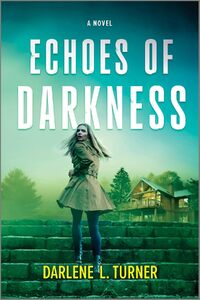Q. HOW HAVE YOUR EXPERIENCES SHAPED THE DEATH OF BEES?
I didn't come from a wealthy family. I was raised on a housing scheme during
Thatcherism on a small Island where unemployment was a way of life, as was
poverty and all the challenges that come with it. I saw a lot growing up
but I was in a protected environment and was sheltered. In the novel, Lenny
represents that protection.
Underage pregnancy, teen sex and drug taking was very much part of my
environment, and though I never used drugs (I had a 6' 3" inch father), I was
always drawn to the kind of girl smoking a fag and holed up in a cloudy
bathroom.
As I got older, things in Scotland didn't change; if anything they got worse.
Poverty and wealth were a stone's throw from one another. You could be in a
wealthy neighborhood one minute but walk a few blocks and you found yourself
in an impoverished area. It's like that in Scotland, and as a result children
have to grow up fast.
Living on the East Side of L.A. within a Catholic community that is
predominantly Latino, I see the same level of poverty. I was in my car one day
when I saw a little girl maybe about seven walking in front of her mother and
pushing a stroller. The mother was pushing a larger stroller and holding the
hand of a small toddler. The mother
looked about twenty-five, but it was the young girl that caught my attention. I
thought to myself "A wee mother" which later translated in THE DEATH OF BEES
as "Wee Maw" when referring to Marnie raising
Nelly.
Later, my sister sent me a docudrama about families in Scotland living
with drugs and poverty, and again, the maturity of the children immersed in
such a heartbreaking situation struck a chord. One child in particular was
talking to the journalist about a father who might not return with the
groceries for the week and go on a "bender" instead. She complained that the
money he used was meant for the family, and she worried about Welfare Services
getting involved in her life again—which she really didn't want. She said
she
would probably have to go to her grandmothers for dinner. There was an element
of hope in the little girl who wondered if her father would return with the
groceries, coupled with a sigh and an admission that he probably wouldn't. I
remember girls like that growing up around me and I remember my own parents
talking about various children who waited outside pubs and bars trying to glean
as much as they could from their drunken parents before the money was all
spent.
The thought occurred to me that these children would be better off raising
themselves. I came up with the idea of THE DEATH OF BEES
a story in which children survive in the face of absent
parents. I wanted to write something about the power in children, the
resilience, while never losing sight that they are still very young and very
vulnerable. I buried the parents and created an enormous secret between the
girls¡ªilluminating the secrets that most of these ¡°wee maws¡± keep. They
don't
want to go into care, they want to stay in their homes. Thinking back to the
movie, I wondered what that girl who waited for her father to return home would
have done if she had the money to go for the groceries, if it was in her power
to get the electric bill paid, and what lengths she would take to survive
parents who have vanished.
Q.: WHAT MAKES THE BOOK RELEVANT TODAY?
Economically, things haven't changed since my childhood and
have, in fact, worsened across the globe. It is now a universal reality and no
longer confined to a place like Scotland. I live in America now, in an area
where I see the effect unemployment and poverty has on a community, especially
the maturity it forces on children.
Q.: HOW DOES YOUR BOOK COMPARE TO THE COMPETITION?
THE DEATH OF
BEES
has been compared to The Cement Garden
by Ian McEwan, which is a dark and claustrophobic story about a mother who dies
of natural causes and at her insistence is buried in the cellar to keep the
children together. THE DEATH OF BEES
is a black comedy about two sisters. It has been described as vibrant and
imaginative, and one reviewer compared my voice to Joe Orton.
No comments posted.


 © 2003-2025 off-the-edge.net
all rights reserved Privacy Policy
© 2003-2025 off-the-edge.net
all rights reserved Privacy Policy